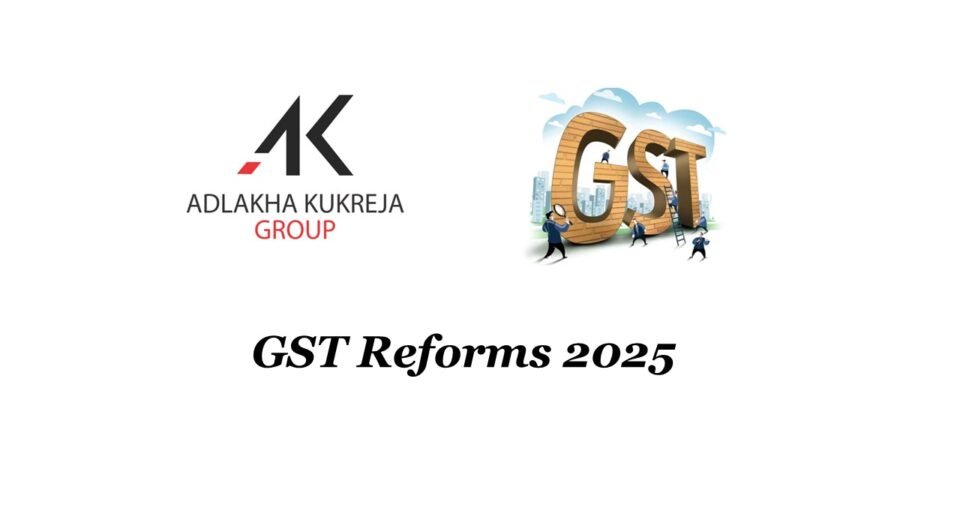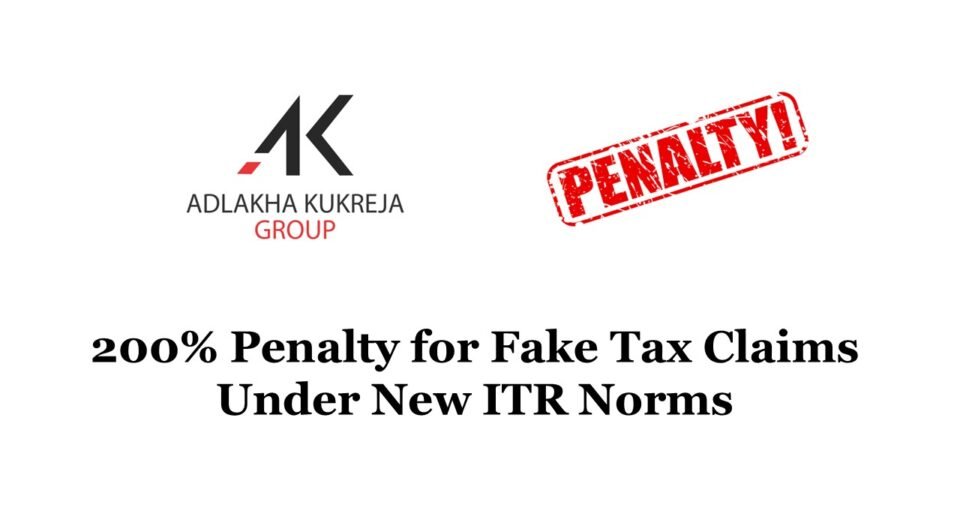
Disclosure of Foreign Assets & Income in ITR
July 18, 2024
Last date to file ITR-U for AY 2022-23 is 31.03.2025
August 2, 2024The Budget 2024 brings significant changes in direct and indirect taxes to foster economic growth and public welfare. Key highlights of Union Budget 2024 include tax reforms to provide relief to taxpayers, support domestic industries, and streamline compliance regulations. Stay informed about these crucial updates affecting the nation’s financial landscape. Let’s look at the key Highlights of Union Budget 2024.
Direct Tax Proposals
- There are changes in the slab rates in the New Tax Regime. The new tax slab rates have a positive impact on taxpayers. Following are the new tax rates:
| Existing Tax Slabs in New Tax Regime | Proposed Tax Slabs in New Tax Regime | Rate of Tax |
| Up to ₹ 3,00,000 | Up to ₹ 3,00,000 | Nil |
| ₹ 3,00,000 – ₹ 6,00,000 | ₹ 3,00,000 – ₹ 7,00,000 | 5% |
| ₹ 6,00,000 – ₹ 9,00,000 | ₹ 7,00,000 – ₹ 10,00,000 | 10% |
| ₹ 9,00,000 – ₹ 12,00,000 | ₹ 10,00,000 – ₹ 12,00,000 | 15% |
| ₹ 12,00,000 – ₹ 15,00,000 | ₹ 12,00,000 – ₹ 15,00,000 | 20% |
| ₹ 15,00,000 and above | ₹ 15,00,000 and above | 30% |
- Standard deduction for salaried employees has been increased from ₹ 50,000 to ₹ 75,000 per annum.
- Deduction on family pension for pensioners has been increased from ₹ 15,000 to ₹ 25,000.
- Corporate Tax rates for foreign companies have been reduced from 40% to 35%.
- It is proposed that Angel tax will be abolished for all classes of investors. Angel tax is an income tax levied when an unlisted company issue shares to an investor at a price higher than its fair market value.
- Long Term Capital Gain exemption on equity-oriented mutual funds and Equity Shares raised from ₹ 1 lakh to ₹ 1.25 Lakh annually.
- Securities Transaction Tax (STT) on Futures and options increased to 0.2% and 0.1% respectively.
- Long Term Capital Gain(LTCG) on certain financial assets increased to 12.5% (Earlier 10%)
- Short-term capital gain (STCG) on certain financial assets will be subject to an increased rate of 20% (Earlier 15%).
- Indexation benefit has been removed for the computation of LTCG.
- Income from the buy-back of shares of a domestic company will be deemed dividends and taxed in the hands of the recipient.
- TDS on electronic commerce operators under Section 194O reduced from 1% to 0.1%.
- TDS under Section 194F on repurchase of units by mutual funds or UTI at the rate of 20% is to be withdrawn.
- Any correction in the TDS/TCS statement can be made within six years from the end of the financial year.
- Existing TDS rate of 5 percent on the following payments is being reduced to 2 percent:
Section 194D – Payment of insurance commission
Section 194DA – Payment in respect of life insurance policy
Section 194G – Commission etc on sale of lottery tickets
Section 194H – Payment of commission or brokerage
Section 194-IB – Payment of rent by certain individuals or HUF
Section 194M – Payment of certain sums by certain individuals or Hindu undivided family
- An assessment hereinafter can be reopened beyond three years from the end of the assessment year only if the escaped income is ₹ 50 lakh or more, up to a maximum period of five years from the end of the assessment year. Even in search cases, a time limit of six years before the year of search, as against the existing time limit of ten years, is proposed.
- TDS under Section 194T is proposed for the remuneration, interest, commission and bonus paid/payable to Partners of Partnership firm of more than ₹ 20,000 at the rate of 10%.
- No imprisonment in case where payment of TDS has been made within the due date of filing the statement of such quarter.
- For the National Pension Scheme (NPS), the Deduction of expenditure for employers and from the salary of employees is increased to 14% from the existing rate of 10%.
- Launch of NPS Vatsalya with the aim to initiate pension planning for minor children by their parents. After attaining the majority, it will be transferred to the standard NPS already established.
- There are increase in the limit of remuneration to working partners of a firm allowed as a deduction
| (a) | on the first ₹ 6,00,000 of the book profit or in case of a loss | ₹ 3,00,000 or at the rate of 90 per cent of the book-profit, whichever is more |
| (b) | on the balance of the book-profit | At the rate of 60% |
- Safe harbour rates would be provided to foreign mining companies selling raw diamonds in the country.
- No penalty will be levied under the Black Money Act for non-disclosure of foreign income and assets in the Income Tax Return (ITR) where the amount of such assets does not exceed ₹ 20 lakhs.
- Withdrawal of equalisation levy of 2% payable on e-commerce supply or services by an e-commerce operator.
Indirect Tax Proposals
- Some Custom Duty rates have been reduced having intend to support domestic manufacturing, deepen local value addition, promote export competitiveness.
| Changes in Custom Duty | Beneficiaries |
| Fully exempt 3 more cancer medicines from custom duties | Affordable medicines |
| Reduce BCD to 15% on Mobile phone, Mobile PCBA and charger | Mobile Industry |
| Reduce custom duty on gold and silver to 6% and platinum to 6.4%. No BCD on ferro nickel and blister copper. | Domestic value addition |
| Reduce BCD on broodstock, polychaete worms, shrimp and fish feed to 5% | Enhance competitiveness in marine exports |
| Exempted more capital goods for manufacturing of solar cells & panels | Support energy transition |
| Fully exempt custom duties on 25 critical Minerals and reduce BCD on 2 of them | Boost to strategic sectors |
| Reduce BCD to 5% on methylene diphenyl diisocyanate (MDI) for manufacture of spandex yarn | Leather and Textile industry |
| Increase BCD on ammonium nitrate from 7.5% to 10%. | Chemical and Petrochemical Industry |
| Increase the BCD from 10 to 15 per cent on PCBA of specified telecom equipment | Telecommunication Equipment |
- To promote domestic aviation and boat & ship MRO, the period for exporting goods imported for repairs will be extended from six months to one year. Additionally, the time limit for re-importing goods for repairs under warranty will be extended from three to five years.
- No GST on Extra Neutral Alcohol used for manufacture of alcoholic liquor for human consumption.
- No refund of unutilized input tax credit or of integrated tax paid on account of zerorated supply of goods shall be allowed in cases where the zero-rated supply of goods is subjected to export duty.
- There will be reduction in the maximum pre-deposit required for filing an appeal with the appellate authority from ₹50 crores to ₹20 crores in central tax.
- An authorised representative can appear on behalf of the summoned person before the proper officer in compliance of summons issued by the officer.
- Government is empowered to regularize non-levy or short levy of central tax due to any general practice prevalent in trade.
- A new Section 74A in the CGST Act, so as to provide for determination of tax not paid or short paid or erroneously refunded or input tax credit wrongly availed or utilised for any reason pertaining to the Financial Year 2024-25 onwards. It also provides for the same limitation period for issuing demand notices and orders in respect of demands from the Financial Year 2024-25 onwards, irrespective of whether the charges of fraud, wilful misstatement, or suppression of facts are invoked or not, while keeping a higher penalty, for cases involving fraud, wilful misstatement, or suppression of facts. Consequential amendment has been made in various Sections of the CGST Act, to incorporate the reference of Section 74A for the purpose of adjudication of cases from the Financial Year 2024-25 onwards.
You can always visit our website www.akcoindia.com/blog for reading such important information. And if you feel you need any assistance then you may just mail us at contact@akcoindia.com.
You may find our other blogs below:
Who should file an Income Tax Return (ITR)?: Click here
Old Tax Regime vs New Tax Regime: Click here
Relief to TDS Deductors wrt Inoperative PANs: Click here
Source Info: https://incometax.gov.in/




